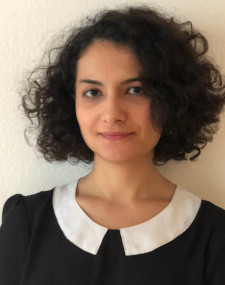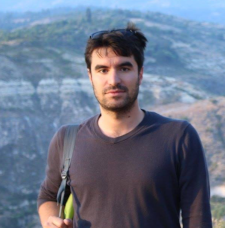Migration Working Group on ‘Attitudes: Experimental and Historical Approaches’
Postponed to new dates tbd
As part of the Migration Working Group, the Migration Policy Centre will host the following presentations:
“The legacy of historical emigration: Evidence from Italian municipalities” , presentation by Erminia Florio, University of Rome Tor Vergata
Abstract
In this paper, I analyze the effect of historical emigration on today’s attitudes towards immigration in Italy. To do so, I collect data on Italian emigrants by municipality from the Ellis Island archives in the period 1892-1924. I estimate, then, the causal effect of emigration on a series of outcomes used to measure attitudes towards immigrants through an IV strategy, by exploiting exogenous variation in proximity to train stations active during years 1892-1924 and in the timing of construction of stations to historical emigration. I find that emigration has a negative and significant long-run effect on attitudes towards immigration. In particular, a one-standard deviation increase in the share of past emigrants reduces the propensity to have a SPRAR in municipalities by roughly 9%. A higher historical emigration also reduces social expenditures on immigrants and nomads, share of votes for center-left parties and non-profit organizations, while increasing the share of votes for center-right parties.
“The Worse-off and the Restless: A Longitudinal Assessment of Immigration Worries, Risk Exposure Inequalities, and Job Mobility”, presentation by Elif Naz Kayran, EUI
Abstract
Do citizens get increasingly concerned about immigration based on their economic anxieties? By now, we know that differences in socio-economic status, political ideology, and ethno-centric values predict differences in immigration attitudes between individuals. Yet, little is known about what makes immigration an important issue over time and whether there is an economic basis for such changes. Theoretically, I argue that exposure to economic risk and job immobility are related to increasing concerns over immigration in part to due to status anxiety born from the unequally risk-prone job market dynamics, and in another part due to the worse subjective perceptions over economic prospects for the less competitive and immobile workers. Empirically, I propose corrections to how we study and measure economic threat by introducing relative and dynamic characteristics of risk. Distinct from earlier work, I add inequality as a dimension to the study of and investigate the effect of changing levels of economic risk in addition to the level of risk. I cite evidence using the German Socio-Economic Panel from 1999 to 2016 and find that being relatively worse-off in terms of risk increases worries not only for the working-class who experience disproportionately higher job insecurity but also for middle-class employees. The research contributes to the broader mass politics field by revealing that while increasing risks is a concern for the working-class who remain at their jobs, relatively higher economic risk levels increase the saliency of immigration as an issue for all social classes and labour market trajectories. Overall, the results show that it is not only the worse-off in the labour markets that become sensitive to immigration but that all citizens are susceptible to worrying about immigration due to their status anxieties.
“Migrant shipwrecks in the Mediterranean Sea and prejudice: evidence from a natural experiment” , presented by Nicolò Cavalli and Effrosyni Charitopoulou, University of Oxford
Abstract
The death of migrants while attempting to reach Europe has become a recurring phenomenon in recent years. However, the ways in which such tragic, external events shape public views towards immigration and immigrants in receiving countries have remained largely unexplored. To address this gap, we focus on one of the largest migrant shipwrecks that happened on October 3, 2013 in the Mediterranean Sea off the Italian island of Lampedusa, causing the death of 368 migrants. We theoretically substantiate our study by drawing on an overlooked dimension of Blumer’s thesis of prejudice as a group position that stresses the importance of “big events” in shaping the perception the ingroup holds about the outgroup, while also integrate insights from social psychology. On this basis, we formulate and test a set of hypotheses leveraging an unexpected deviation in the fieldwork of the European Social Survey (Round 6) in Italy. We adopt a natural experimental design and show that after the shipwreck Italian respondents are willing to accept a higher number of immigrants to their country. This effect is large equaling to 14.8 years of additional education, but wanes out over time. We also find that this event did not lead to a significant change in respondents’ attitudes towards immigrants. On this basis, we make two principal contributions to the literature: first, we extend the theoretical framework of the literature investigating intergroup relations and second, we show that attitudes reveal higher stability compared to policy preferences and thus underline the importance to treat these as distinct constructs in the literature.
Chairs and Discussants
Lenka Dražanová, Research Associate, MPC, EUI
Lennart Schulze, PHD researcher, SPS Department, EUI
Short biographies
Speakers

Erminia Florio is completing her PhD in Economics and Finance at the University of Rome Tor Vergata, where she obtained her MSc Economics in 2016. Her main research interests are Applied Microeconomics, with a special focus on Migration, Labour Economics and Political Economy. Part of her PhD thesis is devoted to study the long-run effect of historical emigration on attitudes towards immigration. Among other projects, she analyzed how information against contact shapes changes to attitudes towards immigrants using a randomized experiment in schools.

Elif Naz Kayran is a PhD candidate in the Department of International Relations and Political Science at the Graduate Institute of Geneva (IHEID) and Visiting Fellow at Nuffield College and DPIR, University of Oxford, for the academic year 2019-20. Elif holds an MA degree from King’s College London. Entitled ‘Policy Preferences and Political Behaviour of Citizens at Times of Risk Inequalities,’ her PhD project explores the effects of employment risks on public attitudes towards immigration and support for radical right-wing parties. Her work on welfare states and the limits of skill-selective immigration policies has appeared in the Journal of European Social Policy.

Nicolò Cavalli is a DPhil candidate in Sociology at Nuffield College, University of Oxford and a Postdoctoral researcher at Bocconi University. He holds a BA in Politics from University of Bologna and an MSc in Economics from Bocconi University, Milan. He held visiting positions at SciencesPo, Paris, the London School of Economics and Harvard’s Institute for Quantitative Social Science. His research interests include intergroup relations, computational social science and social demography.

Effrosyni Charitopoulou is a DPhil candidate in Sociology at Nuffield College, University of Oxford. She holds an MSc in Sociology from the University of Oxford and an MA in Economics and International Relations from the University of St Andrews, Scotland. Her research interests include intergroup relations, far-right voting, and collective protest.
Chairs and Discussants
Lenka Dražanová is a Research Associate to the Observatory of Public Attitudes to Migration (OPAM) project. Lenka received her PhD (Summa Cum Laude) in political science from the Berlin Graduate School of Social Sciences at Humboldt-Universität zu Berlin in 2016. She holds additional degrees in political science from Central European University (Hungary) and Charles University (Czech Republic). She was also awarded a Humboldt Postdoc Scholarship at the Humboldt-Universität zu Berlin under the German Excellence Initiative. Lenka´s primary research agenda has two specific areas that revolve around the question whether we can really identify a current shift towards less tolerant, populist and nationalist societies and politics (especially in Europe), and if so, how we can explain the underlying causes
Lennart Schulze Postdoc research in the SPS Department, EUI